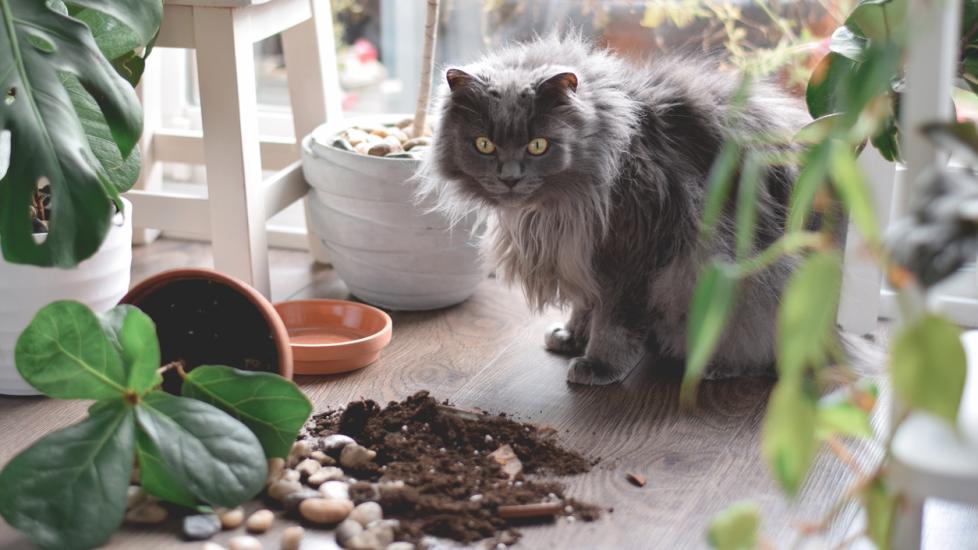 Ah, the mysterious and often exasperating behavior of our feline friends! Have you ever found yourself picking up yet another item that your beloved cat has knocked off a surface, perhaps for the umpteenth time? It’s a common occurrence among pet owners, and one that can leave us scratching our heads or laughing at their antics. But why do cats knock things over in the first place? Understanding this behavior can help us not only manage it but also appreciate the fascinating nature of these independent creatures.
Ah, the mysterious and often exasperating behavior of our feline friends! Have you ever found yourself picking up yet another item that your beloved cat has knocked off a surface, perhaps for the umpteenth time? It’s a common occurrence among pet owners, and one that can leave us scratching our heads or laughing at their antics. But why do cats knock things over in the first place? Understanding this behavior can help us not only manage it but also appreciate the fascinating nature of these independent creatures.
Firstly, let’s acknowledge that every cat is unique, and each may have its own reasons for knocking items around. However, there are several general explanations proposed by animal behaviorists and veterinarians:
-
Curiosity and Play: Cats are naturally curious animals. They love to explore new objects and surfaces, including those they find particularly interesting or intriguing. If an object catches their eye or seems like a potential toy, they might bat at it with their paws, potentially causing it to fall. This could be especially true if the object moves when touched or makes noise, which can stimulate a cat’s instinctual hunting behaviors.
-
Territorial Marking: In some cases, a cat might rub against or swat at an object as part of marking territory. By leaving scent from glands on their cheeks, ears, and paws, they are essentially saying “this area belongs to me”. While it may seem unrelated to knocking something over, the act of rubbing or swiping can inadvertently dislodge objects placed nearby.
-
Attention-Seeking: Like any pet, cats crave attention from their human companions. Sometimes, knocking things down can be a way for them to get noticed or interacted with—a cry for playtime or affection.
-
Poor Motor Skills: Kittens and young cats still developing coordination skills might accidentally bump into or push over objects due to clumsiness or lack of control. Even adult cats can occasionally misjudge their reach or strength, leading to unintended consequences.
-
Health Issues: Occasionally, behavioral changes such as increased restlessness, anxiety, or even cognitive decline associated with aging can manifest as knocking objects over. Health issues affecting balance or coordination, such as hyperthyroidism, arthritis, or vestibular disease, should always be considered.
To minimize the impact of this behavior without punishing the cat, consider adopting these strategies:
- Keep frequently knocked-over items out of reach or away from areas frequented by your cat.
- Provide plenty of toys and playtime to satisfy your cat’s natural need for stimulation. Interactive play sessions can reduce unwanted behavior by redirecting energy towards appropriate targets.
- Monitor your cat’s health regularly and address any underlying medical conditions promptly.
Remember, understanding your cat’s motivations is key to managing their behavior effectively. With patience, consistency, and creativity, you can create a harmonious environment where both you and your furry friend thrive.
